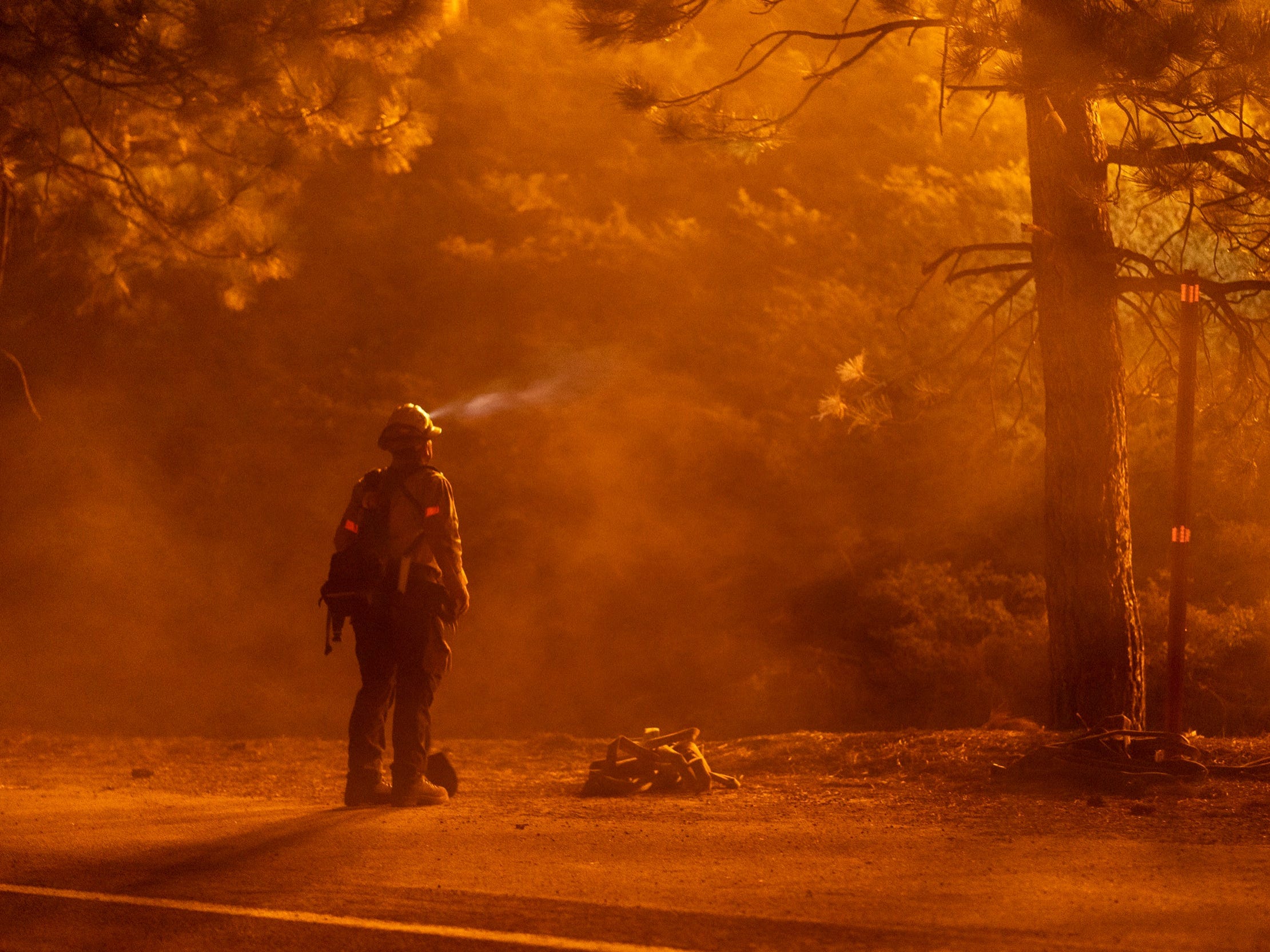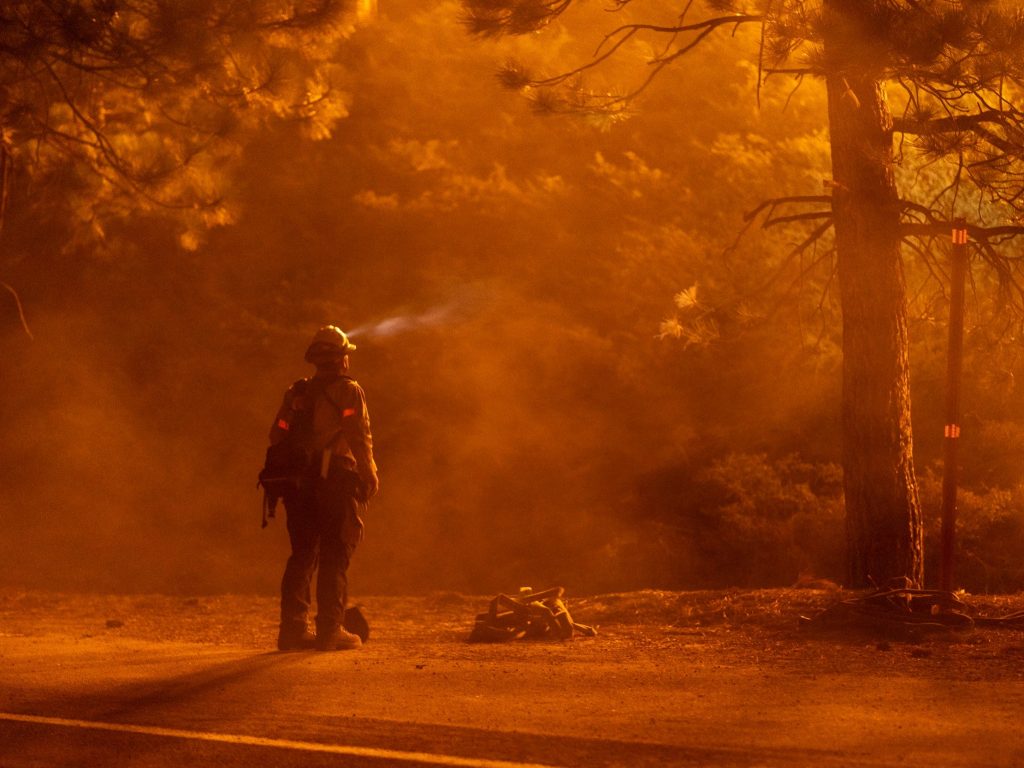
David McNew/Getty Images
- A new study found a link between wildfire smoke and COVID-19 cases and deaths.
- The study looked at more than 90 counties in the West from March to December last year.
- In some counties, the authors found nearly 20% of COVID-19 cases were linked to wildfire smoke.
- See more stories on Insider's business page.
Thousands of COVID-19 cases and deaths in the West last year may have been due to wildfire smoke, according to a new study published in the journal Science Advances on Friday.
Harvard University researchers looked at data from 92 counties in California, Oregon, and Washington from March to December 2020, and found "strong evidence" that short-term exposure to fine particulate matter from wildfires amplified COVID-19 cases and deaths.
In some of the counties, all of which were impacted by wildfires, the authors found nearly 20% of COVID-19 cases were linked to the increase in wildfire smoke. In certain counties, an even higher percentage of deaths were linked to the smoke.
Read more: The red-hot job market is making employers afraid to mandate vaccines
Wildfires are known to produce high levels of pollution that can be harmful to human health, and earlier studies have linked air pollution to more severe COVID-19 symptoms.
In addition to worsening COVID-19 symptoms, air pollution can increase transmission as well.
"When there are more particles in the air, these microbes actually have a greater chance of getting into your lungs," Irva Hertz-Picciotto, an environmental epidemiologist at the University of California at Davis, told The Washington Post. "There's a lot of plausibility that the wildfires, by massively increasing the amount of PM2.5 that people are breathing, could promote transmission of the virus."
Experts also told The Post that wildfire smoke leads to people spending more time indoors, where the virus is more likely to spread.
In 2020, California saw one of its worst-ever wildfire seasons. In 2021, wildfires have again begun spreading across the West, much of which is also undergoing an extreme drought.
The study's authors noted that climate change has increased the risk of wildfires and therefore exposure to smoke.
"This illustrates the systemic and contingent nature of crises and how the effects of one global crisis (climate change) can have cascading effects on concurrent global crises (the COVID-19 pandemic) that play out in location-specific ways (increased COVID-19 cases and deaths due to wildfire)," the authors wrote.
Have a news tip? Contact this reporter at [email protected].

